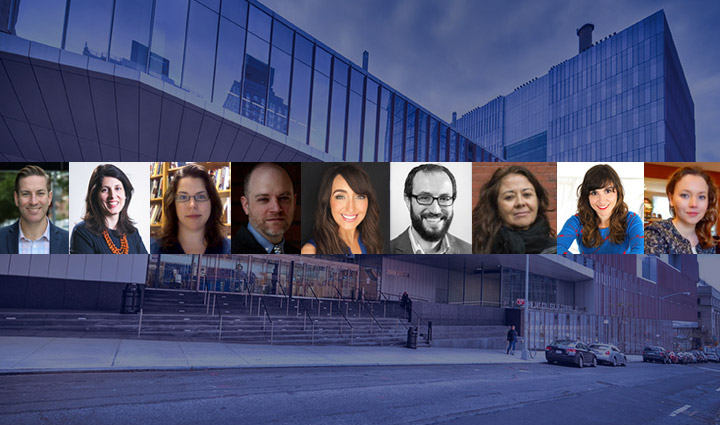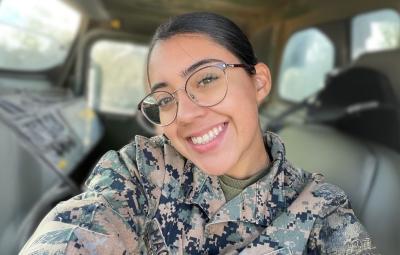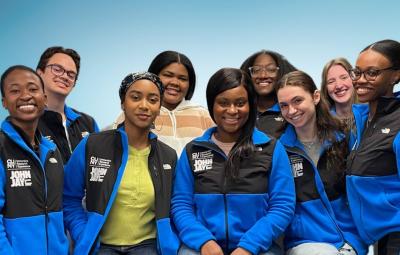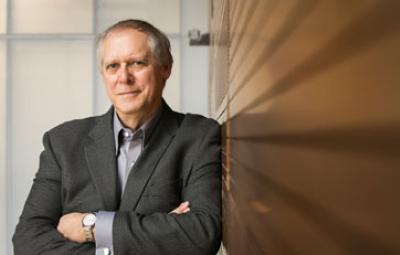
“Research sits at the core of our mission to educate for justice. The research that our faculty and students perform has lasting, positive impacts on our society.” —Karol V. Mason, President of John Jay College
Recently, President Karol V. Mason announced the awardees of the 2018-19 Inaugural Presidential Student-Faculty Research Collaboration Award. Mason directed the Office for the Advancement of Research to develop the award, which was generously funded through the President’s own discretionary research budget, to involve students directly and comprehensively in faculty-supervised research or creative projects. “Research sits at the core of our mission to educate for justice. The research that our faculty and students perform has lasting, positive impacts on our society,” says Mason. “Empirical data reveals inconsistencies, highlights disparities, and has the power to open minds and change policies.” In the coming weeks we’ll be diving deep into each of the awardees’ projects specifically, but we’d like to take this opportunity to recognize their upcoming work, and familiarize the John Jay community with their future projects.
 Maria D’Agostino, Associate Professor, Public Management and Nicole Elias, Assistant Professor, Public Management
Maria D’Agostino, Associate Professor, Public Management and Nicole Elias, Assistant Professor, Public Management
 Gender Equality in Municipalities
Gender Equality in Municipalities
“Our student-faculty research collaboration examines how municipalities are addressing gender equality through three learning objectives that contribute to student success—developing knowledge of gender equity; building and applying research skills; and participating in mentorship and professional development for future opportunities,” says D’Agostino.

Michael Yarbrough, Assistant Professor, Political Science; Jamie Longazel, Associate Professor, Political Science; and Jean Carmalt, Assistant Professor, Political Science
Diversity, Inequality, and Law in the Global City of New York
“The Presidential Research Collaboration Award will fund the first phase of a multi-stage research project, in which Law & Society majors do research in their own communities to help solve a problem they think is important,” says Yarbrough. “In the interdisciplinary field of Law & Society, social scientists, legal scholars, and others, study how law works in the real world. A lot of this research focuses on working-class communities of color—like the ones our students call home—but the research is almost always conducted by outsiders. In this research project, our students will help design and conduct the project from the ground up.”
 María Julia Rossi, Assistant Professor, Modern Languages and Literatures
María Julia Rossi, Assistant Professor, Modern Languages and Literatures
Encouragement and Models for Latina and Latino Students
“I am currently finishing a manuscript on servants in Latin American fiction and beginning a new project on translations of queer texts in Latin America during the twentieth century,” says Rossi. “However, my proposal is an attempt to involve Latina and Latino students in research activities, as well as visualizing Spanish as a language for intellectual and academic exchange. I expect to open new roads for students who had not imagined themselves as researchers for many reasons. In this sense, what I hope to accomplish is that students present their own research in Spanish in undergraduate research conferences.”

Yuliya Zabyelina, Assistant Professor, Political Science
The Vienna Winter School on Transnational Organized Crime and UN Office of Drugs and Crime SHERLOC Database
“Over the past two decades, a new generation of organized crime groups has appropriated advanced technologies, adapted sophisticated network structures, and diversified criminal activities and modus operandi. This resulted in new threats to the security and economic well-being of nations, human rights and environmental sustainability,” says Zabyelina. “The project I proposed for the Presidential Student-Faculty Research Collaboration Award aims to give students a chance to research transnational organized crime, learn about its nature, characteristics and contemporary patterns and explore national policies.”
 Marcia Esparza, Associate Professor, Criminal Justice and Daniel Auld, Director of Student Learning, Academic Services & Assessment
Marcia Esparza, Associate Professor, Criminal Justice and Daniel Auld, Director of Student Learning, Academic Services & Assessment
 Historical Memory Project/E-Portfolio Collaboration
Historical Memory Project/E-Portfolio Collaboration
“Our project is rooted in the John Jay Historical Memory Project or HMP. HMP cultivates historical memory to memorialize victims of state-sponsored terror, raise awareness of historical injustices in Latin America and beyond, and foster our collective human rights memory. We maintain that the recovery of historical memory is an antidote to ongoing historical injustices,” says Auld. “In pursuit of our mission, HMP preserves the collective memory of the forcibly disappeared, the tortured, the massacred, and all those whose human rights were violated by planned and coordinated state actions. Our goal is to teach and raise awareness of state violence and human rights crimes and empower immigrant and diasporic communities to form a shared sense of identity and to become the next generation of human rights activists seeking truth, justice, and equality.”



